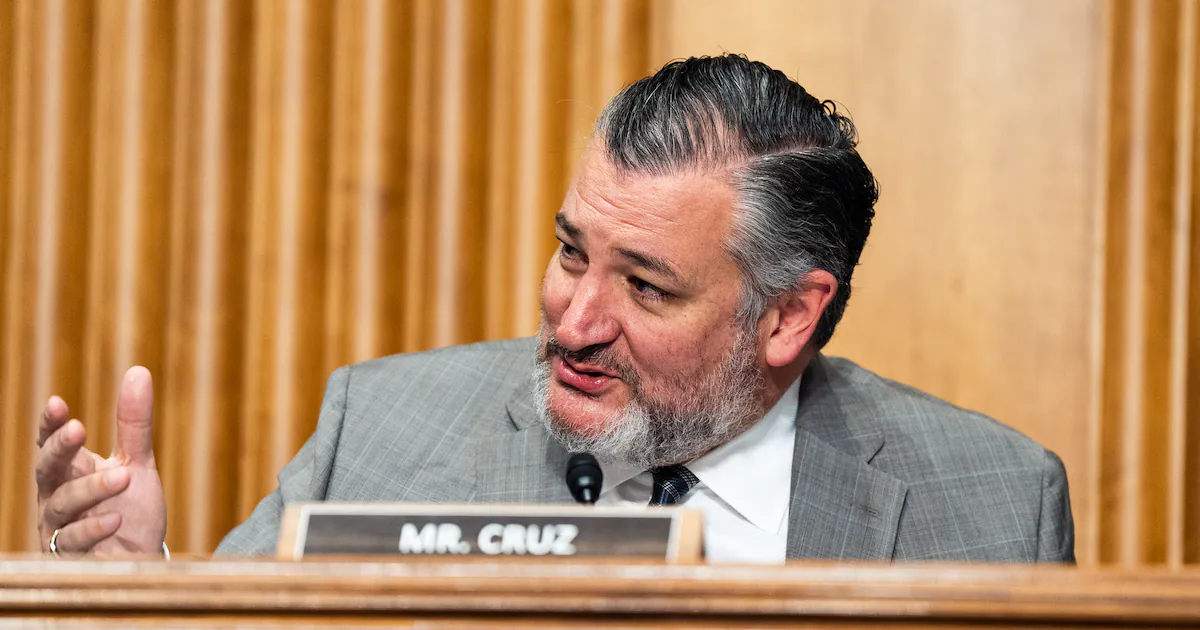
For years, Republicans have denounced tech companies’ policies barring hateful and misleading posts, alleging that a sweeping liberal censorship operation led by the Biden administration was forcing social media platforms to suppress conservative voices.
That campaign is running into an awkward new obstacle: President Donald Trump’s efforts to rein in liberal speech.
At a Wednesday Senate hearing, Democrats and Republicans agreed that such “jawboning” of private companies and institutions is a threat to democracy – but couldn’t agree on which party’s president was to blame.
While Sen. Eric Schmitt (R-Missouri) sought to focus the hearing on what he called the “vast censorship regime perpetrated by the Biden administration,” the committee’s Democrats swiftly dismissed the claim. Calling the hearing’s focus “a farce,” Sen. Edward J. Markey (D-Massachusetts) accused the Trump administration of waging “a war on free speech that this country has not seen since the McCarthy era in the 1950s.”
The combative exchanges illustrated how Trump’s second term has scrambled partisan fault lines in the long-standing debate over how tech companies police online speech.
The political calculus for both parties appears to have shifted amid what Democrats argue is a White House crackdown on dissent on college campuses, media companies and law firms. The Trump administration handed Democrats new ammunition last month when ABC took late-night host Jimmy Kimmel off the air after Federal Communications Commission Chairman Brendan Carr criticized the comedian and implied that the FCC could retaliate against those who aired him.
“We can do this the hard way or the easy way,” Carr told right-wing podcaster Benny Johnson, counseling Disney, which owns ABC, to “find ways to change conduct” or else. (Kimmel’s show has since been restored, and Carr has insisted he made “no threat” against the network.)
Republicans – with a few notable exceptions including Sen. Ted Cruz (R-Texas) – have largely defended the Trump administration or remained silent. Cruz last month characterized the FCC chair’s threat as “dangerous,” arguing the government shouldn’t be deciding what speech it does or doesn’t like.
Cruz had planned to use Wednesday’s hearing to tout a bill that would make it easier for Americans to sue the federal government when it pressures companies or institutions, including social media platforms, to suppress their speech – a practice known as “jawboning.” But the Senate Commerce Committee chair unexpectedly missed the session to attend to what his office said was a family matter.
If there was any hope that Congress would come up with a bipartisan approach to protecting free speech, that wasn’t evident during Wednesday’s hearing, which devolved into mostly partisan talking points.
“I haven’t seen any” evidence of illegal jawboning by the Trump administration, Schmitt, who led the hearing in Cruz’s absence, told The Washington Post. “Jimmy Kimmel, his ratings are terrible,” Schmitt added. “My feeling is he’s just an unfunny activist whose days are probably numbered.”
Threatening to pull broadcasters’ licenses over a comedian’s comments is “government censorship by our president, plain and simple,” said Sen. Jacky Rosen (D-Nevada). “It’s what they do in Russia. It’s what they do in North Korea. It’s what they do in China.”
Wednesday’s hearing was also designed to amplify long-standing criticisms from Republicans that the Cybersecurity and Infrastructure Security Agency, a unit within the Department of Homeland Security focused on cyber and foreign threats, censored Americans by flagging misleading posts about voting to internet platforms during the 2020 election. Industry experts and some tech companies have countered that while tech companies receive complaints from politicians and advocates about content on their platforms, the companies alone decide what to allow or remove.
Last year, the Supreme Court rejected a Republican-led effort to restrict White House officials and other federal employees from pressuring social media companies to remove posts from their platforms that the U.S. government deems problematic, saying the challengers did not have legal standing to bring the case. The court said the plaintiffs in Murthy v. Missouri had not demonstrated that they were directly harmed by the communication between the government and social media platforms.
Since that court defeat, Republicans have expanded their anti-censorship campaign to target international technology regulations, including a wide-ranging European internet safety law known as the Digital Services Act. The law requires large tech companies to implement safeguards against “negative effects on civic discourse and electoral processes” or face steep fines.
Europe is “creating a censorship regime that would make communist China blush,” Schmitt said Wednesday.
The years-long Republican effort to limit tech companies’ content moderation practices has largely worked. Some university researchers who once worked alongside civil society groups have stopped tracking disinformation and cut down on contact with tech companies. Social media companies have watered down or reversed their rules barring some forms of misinformation and hate speech. Meta CEO Mark Zuckerberg pledged earlier this year to work with the Trump administration to fight onerous tech regulations abroad in an effort to preserve free expression.
Despite those changes, most lawmakers appear to be sticking to their talking points about online speech. In his opening statement Wednesday, Cruz had planned to reiterate his concerns about Carr’s pressure on ABC but chide his Democratic colleagues for only recently awakening to the perils of government jawboning.
Sen. Maria Cantwell of Washington, the top Democrat on the Commerce Committee, said in a statement after the hearing that if Cruz wants to address government censorship, he should call Carr to testify before the committee. A spokeswoman for Cruz said he intends to call all three FCC commissioners to testify in a hearing this fall.
“Everyone’s being very careful right now to stay in their lanes,” said Katie Harbath, a former Meta policy official and former chief digital strategist at the National Republican Senatorial Committee.
“This has become a political fight, and so each side has their own thing that they’re lobbying for.”